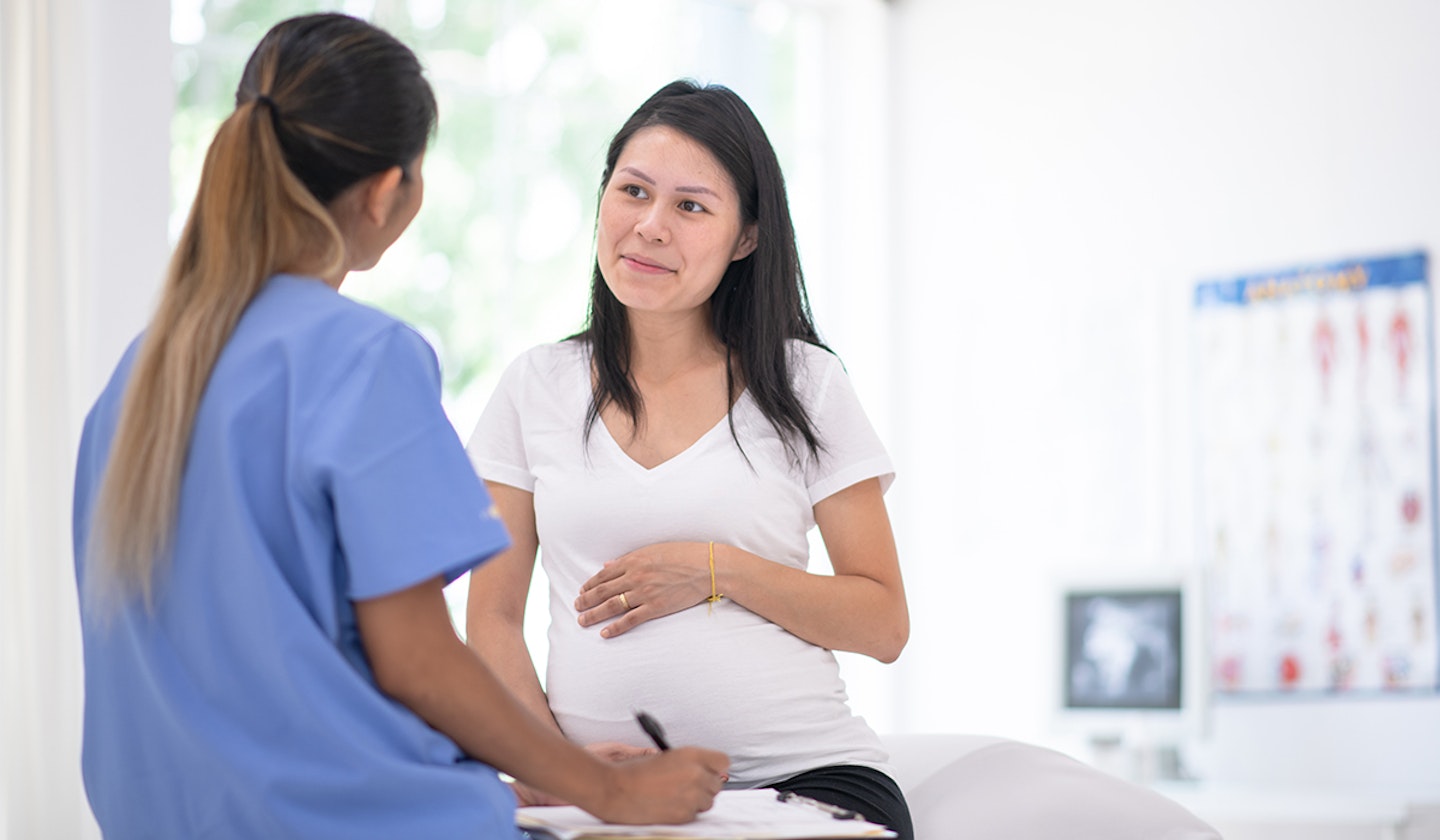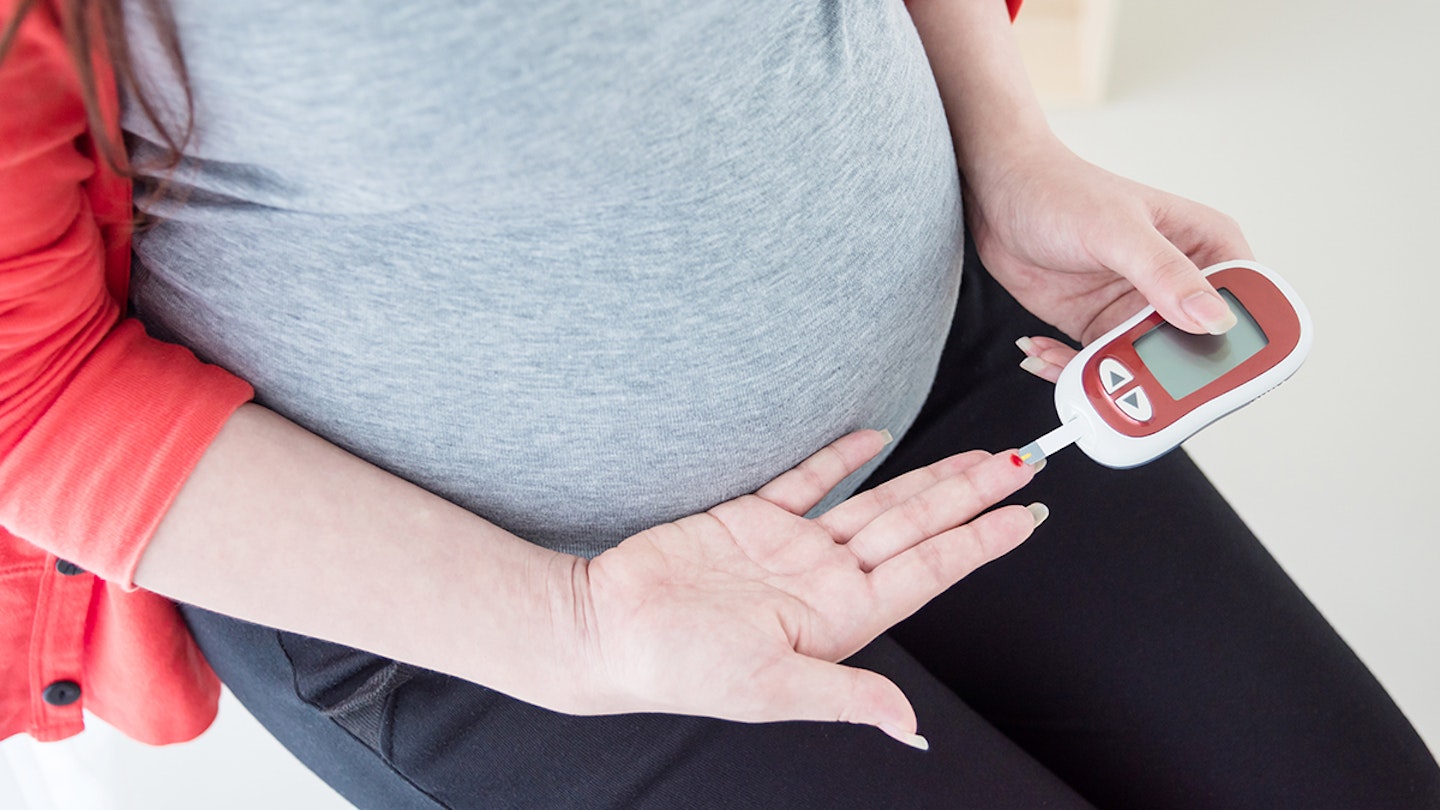Most of us are aware of diabetes, but when you're pregnant, the phrase 'gestational diabetes' starts getting thrown around and it can feel a bit scary.
Obstetrician, Gynaecologist and the founder of The Maternity Collective, Dr Ellie Rayner explains more.
What is gestational diabetes?
Gestational Diabetes is the name given to diabetes that develops during pregnancy and usually resolves after birth. It usually starts around the middle to end of your pregnancy and it occurs as your body is not able to produce enough of the hormone Insulin, to meet the increased demands of the pregnancy. The hormone insulin helps to control the level of blood sugar (glucose) in your body, so with gestational diabetes you end up having higher blood glucose levels.
Who is more at risk of gestational diabetes?
Unfortunately, any pregnancy can be affected by gestational diabetes however there are some women who are more likely to develop the condition.
These include:
-
If your Body Mass Index (BMI) is greater than 30
-
If you have had gestational diabetes in a previous pregnancy
-
If your previous baby weighed 4.5kg (10lbs) or more at birth
-
If you have a parent or sibling with diabetes
-
If your family origin is South Asian, Chinese, African-Caribbean or Middle Eastern.
At your booking appointment, your midwife will assess if you have any of these factors that increase your chance, and if so will offer you a test during your pregnancy to check whether you have developed the condition.

What symptoms should I look out for?
Gestational diabetes doesn’t usually cause any symptoms and in most cases, it is picked up with the screening tests your midwife performs during pregnancy. Uncommonly, women may report increased thirst, needing to pass urine more often than normal or tiredness - however, these are common pregnancy symptoms so do not always mean you have gestational diabetes.
At your booking appointment, your midwife will assess if you have any of the risk factors that increase your chance of developing the condition, and if so will offer you a test during your pregnancy to check your glucose levels. This is often an Oral Glucose Tolerance Test (OGTT) and in most pregnancies, this occurs between 24-28 weeks of pregnancy, however, if you have had gestational diabetes before then you are likely to be offered two tests, one soon after your booking appointment and then a repeat test again at 24-28 weeks pregnancy.
Even if you do not have risk factors and are not being recommended an oral glucose tolerance test, your midwife will be testing your urine at every appointment and looking for evidence of glucose in your urine as this is one of the purposes of this test.
How will it affect my baby?
Most women with gestational diabetes have a healthy pregnancy and baby but unfortunately, serious problems can occur if it is not diagnosed or treated properly.
Due to higher blood sugar levels in your body, this can cause your baby to grow larger than usual and may lead to difficulties with your baby’s birth, such asshoulder dystocia (when your baby’s shoulders get stuck) and therefore may mean you are recommended for induction of labour or a Caesarean Birth. Your baby is also more likely to need additional care after birth, possibly in a neonatal unit to help control their blood sugar or to treat jaundice.
Rarely, there is an increased chance of a baby being stillborn or dying around the time of birth with gestational diabetes, which is why you will be recommended additional close monitoring with ultrasound scans and appointments with an obstetric doctor to discuss the condition in detail and provide the necessary treatment and recommendations to reduce the risk of complications.
Can you prevent gestational diabetes?
Controlling your blood sugar levels reduces the chances of complications with your pregnancy and baby after birth so this is the most important thing you can do.
Eating healthily and exercising are very important steps to take during any pregnancy but especially so if you are diagnosed with gestational diabetes. Some women find that the condition can be controlled just by undertaking these changes.
Most women will require medication or insulin injections to control their sugar level and to ensure they stay within the normal range and your specialist medical team and midwife will explain all of this to you and how to monitor and treat your condition.

How early can you be induced with gestational diabetes?
Not all women with gestational diabetes will need or be recommended an induction of labour and this will depend on your individual circumstances and the results of your glucose monitoring and baby’s growth ultrasound scans. If you have gestational diabetes and no evidence of complications with you or your baby you will be advised to have your baby no later than 40 weeks and 6 days either by induction of labour or elective caesarean birth if you haven't already gone into labour spontaneously by this time.
If you or your baby show any signs of complications developing, you may be recommended to have your baby earlier and your doctor will explain this and the timing in full to you.
Are women with gestational diabetes at risk of covid?
Unfortunately, any pregnant woman is at risk of the covid-19 and therefore it is especially important to follow the latest advice and guidance available from the Royal College of Obstetricians and Gynaecologists regarding vaccination and staying safe during this time.
Gestational diabetes has been found to be more common in pregnant women with asymptomatic covid-19 (without any symptoms) and in general, poorly controlled diabetes can lead to greater health complications such as infections, so if you do any symptoms or questions or concerns, speak to your midwife or doctor as soon as possible.
For more information see the Royal College of Obstetricians and Gynaecologists’ patient information section for the latest advice and guidance.
Popular articles to read next
“I had gestational diabetes throughout my first pregnancy without knowing”
